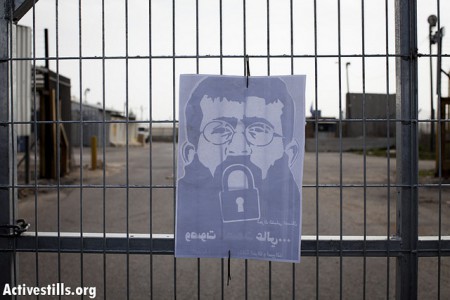
Palestinian political prisoners in Israel
23 May 2012, CREA Amsterdam. 24 May 2012, American Book Center The Hague
With Abeer Baker The chair of the Legal Clinic for Prisoners Rights, in the Law Faculty of Haifa University, and the co-editor of the book Threat Palestinian Political Prisoners in Israel.
Prisoners in Israel can be classified into one of the two following categories: ‘criminal’ and ‘security’. While the commands and directives of the Israeli Prison Service do not define what a ‘criminal’ prisoner is, they do have a strict definition of what a ‘security’ prisoner. Such a person is defined as “a prisoner who was convicted and sentenced for committing a crime, or who is imprisoned on suspicion of committing a crime, which due to its nature or circumstances was defined as a security offense or whose motive was nationalistic.” Most of the prisoners who fall within this category are, not surprisingly, Palestinians.
Applied in a blind, categorical manner and without distinction, the ‘security prisoner’ rubric transforms thousands of Palestinians as they are seized, interrogated, detained and imprisoned in Israel into a single group. All people categorized within this group are seen as posing an identical level of danger to Israel which justifies ‘special’ treatment: brutal arrest, prohibition from meeting a lawyer, torture and illegal interrogation methods, arrest without trial, lack of due process, disproportional sentence, stricter living conditions, isolation, and also poor prospects of early release and parole. In contrast to the general approach towards prisoners that is based on an individual assessment of a person and the extent of danger he or she presents, the attitude of the State of Israel towards Palestinian political prisoners – independently of their alleged offense or their sentence – is based on their group identification as ‘security threats’.
This meeting is organized in cooperation with CREA and Democratie en Media.